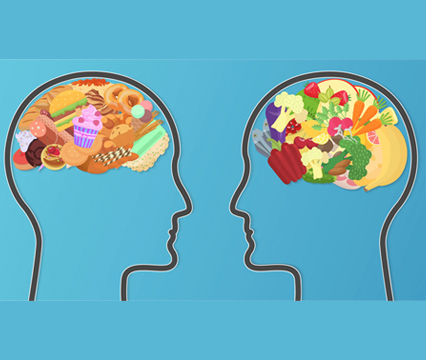Non-linear association between dietary fiber intake and cognitive function mediated by vitamin E: A cross-sectional study in older adults
Non-linear association between dietary fiber intake and cognitive function mediated by vitamin E
While dietary fiber has been suggested to help prevent cognitive decline, the precise relationship between intake levels and cognitive function, as well as the mechanisms behind it, remains unclear. This study by He et al. (2025) examines the non-linear association between dietary fiber consumption and cognitive performance in older adults, with a focus on the potential mediating role of vitamin E. NHANES data (2011–2014) from 2,713 persons aged 60 years and older were utilized in this cross-sectional study. Two 24-hour dietary recalls were used to gauge fiber consumption. Cognitive function was evaluated using three tests: a memory subtest from the CERAD battery, the Digit Symbol Substitution Test (DSST) for processing speed, and the Animal Fluency Test (AFT) for executive function. Analysis of the results revealed that DSST scores demonstrated a substantial negative correlation with fiber consumption beyond the threshold and a significant positive correlation below it. DSST scores peaked at an intake of 29.65 grams per day, while composite cognition scores plateaued at 22.65 grams. Below these thresholds, fiber intake positively correlated with cognitive performance, but above them, the benefit diminished or reversed. Further analysis showed similar trends, with a significant positive relationship below the inflection point and no significant effect above. Vitamin E was found to mediate a large portion of the relationship, accounting for 85% of the link between fiber and overall cognition and 86.8% of the link with DSST scores. Moderate consumption of dietary fiber is associated with improved cognitive function in older adults, with a significant portion of the benefit attributed to vitamin E intake. [NPID: Dietary fiber, vitamin E, cognitive function, threshold effect, mediation analysis]
Year: 2025
Reference: https://doi.org/10.3389/fnut.2025.1611162
 Navigation
Navigation








